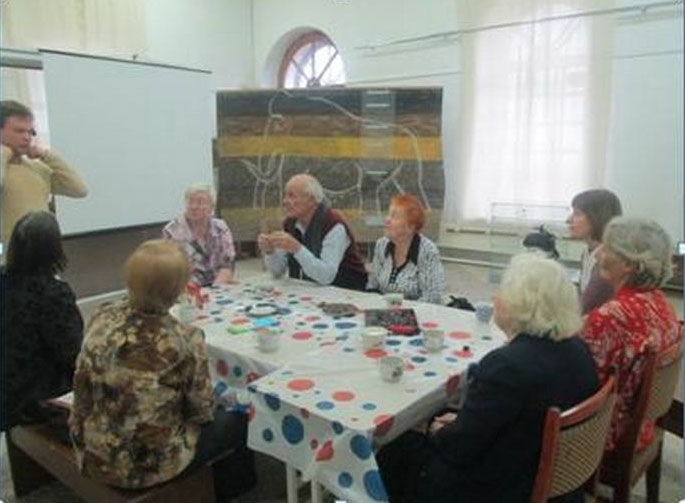









On the Day in commemoration of the victims of political repressions the Kansk Museum of Local Lore organized an event under the motto „All of them should be known by name”, which was attended by inhabitants of the town, who were politically persecuted in the 1930s.
On this very day the assembled commemorated all those, who were killed during the years of Stalin’s reign of terror – as well as those, who, even after Stalin’s death, had to go through Soviet camps. Almost half of the USSR population was affected by these tragic pages in the first half of the 20th century. The climax of persecutions was the years of terror, which Stalin ignited from 1937 to 1938 against his own people. However, the tragedy had started already much earlier – almost immediately after the revolution in 1917. In 1918 several thousands of clergymen were shot, in the same was the Bolsheviks dealt with the sailors of the Kronstadt rebellion in 1921. In the late 1920, early 1930s the farmers were affected by compulsory measures. More than one million homesteads were confiscated, about 5 millions of „kulaks“ (big farmers) deported and resettled in special places. The exact number of persecuted people remains unknown until this day. The rehabilitation of the victims of political repressions started in the USSR in 1954. Later the practice of rehabilitation was stopped and only restarted at the time of Gorbachev’s „perestroika“.
Within the framework of this event, they presented the film “Road of death“. The attendants got familiar with the history of the railroad line leading from Salekhard to Igarka (Construction Project 503). The staff member of the Krasnojarsk Kinograph and producer of the film „Road of death“, Sergei Medvedev, told the audience about the origin of the film, about its history.
In the cause of a discussion staff members of the museum and attendants of the event came to the unanimous conclusion that the perpetuation of commemoration of the historical events of the times of repressions is inevitable for the creation of a lively link between generations.
